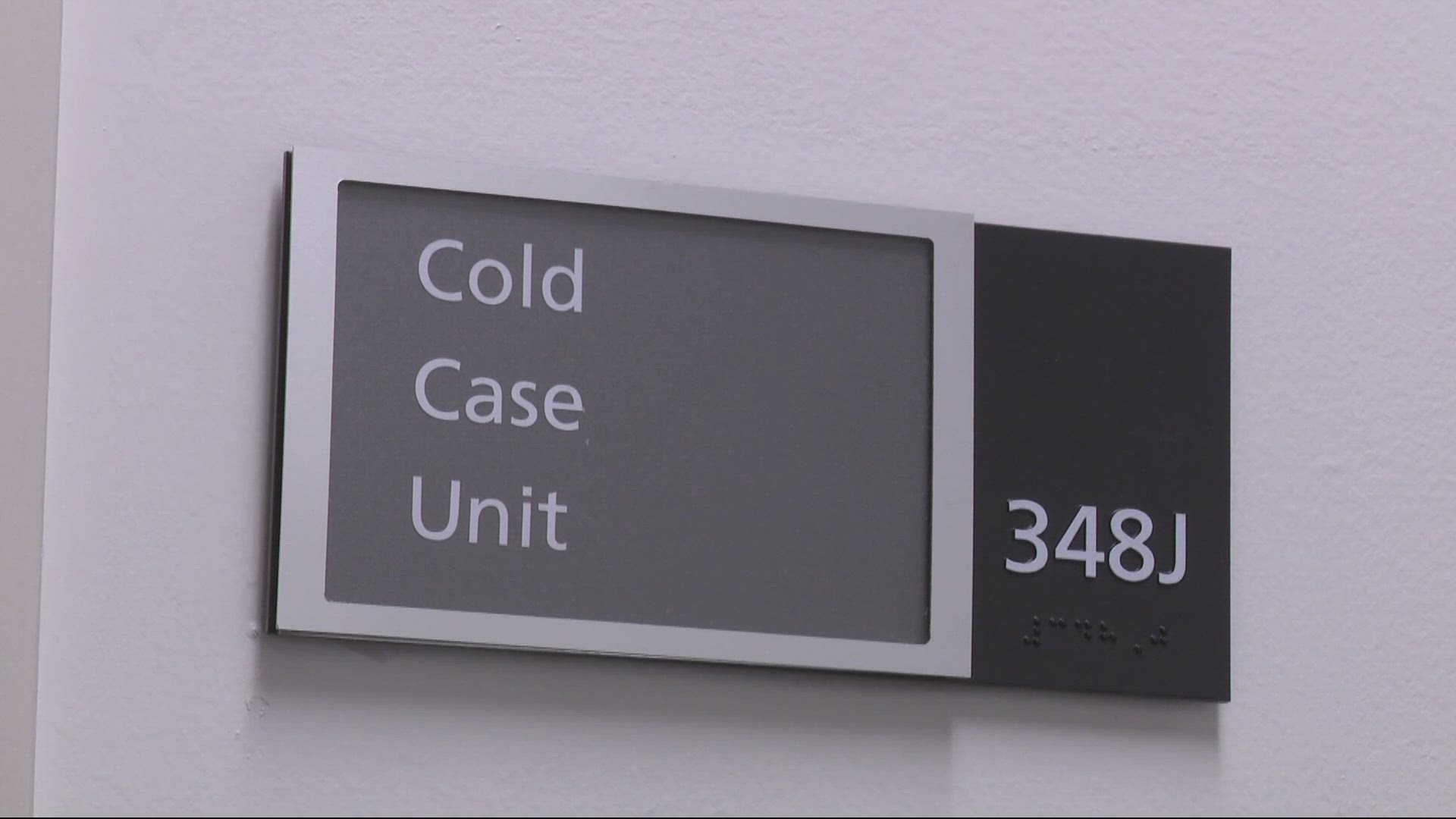PORTLAND, Ore. — A handful of cold cases in Washington County are getting a fresh look, thanks to a $533,000 federal grant from the Department of Justice that will fund the county's Cold Case Unit through 2026.
The unit was established through a previous grant in 2020, bringing together a small group of detectives, prosecutors and a forensic consultant. The team made their first arrest earlier this year.
"We were able to solve a case and that lead to an arrest and charges being filed and hopefully moving forward to a trial sometime next year," said Washington County District Attorney Kevin Barton.
That case was the 1988 murder of 30-year-old Deborah Atrops. KGW first covered the case that year, back when her body was found in the trunk of her car near Beaverton. The Washington County Sheriff's Office arrested her estranged husband, Robert Atrops, in March. Atrops is charged with second degree murder and pleaded not guilty.
"Being able to reach out to the families, especially when we are able to make an arrest or tell them, 'Hey, I need you to stay by your phone. We might be calling you with an update here,'" Detective Mark Povolny said. "Being able to make that call — I've been part of that several times — is pretty powerful."
Resolving a cold case is really about the family, the loved ones who have waited decades for answers, he said, while also ensuring justice is served.
"[We] want to hold that person accountable, if there's somebody that deserves to be held accountable, and it doesn't really matter if that happened two years ago or 50 years ago," Povolny said.
The county has 43 unsolved cases, some of which date as far back as the 1960s, and detectives have prioritized 8 homicides. At least 14 of the cases have DNA evidence, according to a news release from the sheriff's office, and there could be hundreds of additional unsolved sexual assault cases from past decades with DNA evidence. Barton said the team plans to pursue those cases as well, reopening some sexual assault cases using modern DNA testing.
"The tools that existed early on in the DNA process were not as exact and not as good as they are today," he explained. "(We're) continually going back with modern techniques to try and see, 'Is there something new here we can find?'"
Barton said despite the passage of time, there's an urgency to hunt down a resolution for each cold case.
"If someone commits a crime, being able to get away with it for a period of time should not mean that you aren't held accountable for it. No matter who you are, no matter the passage of time, no matter the nature of the crime," he said.
The team's website includes summaries of some of the unit's top cold cases, giving the public access to the information in case someone out there knows something that could lead to a breakthrough. Anyone with information that could help detectives solve one of the cases is urged to email the unit or call 503-846-2686.

